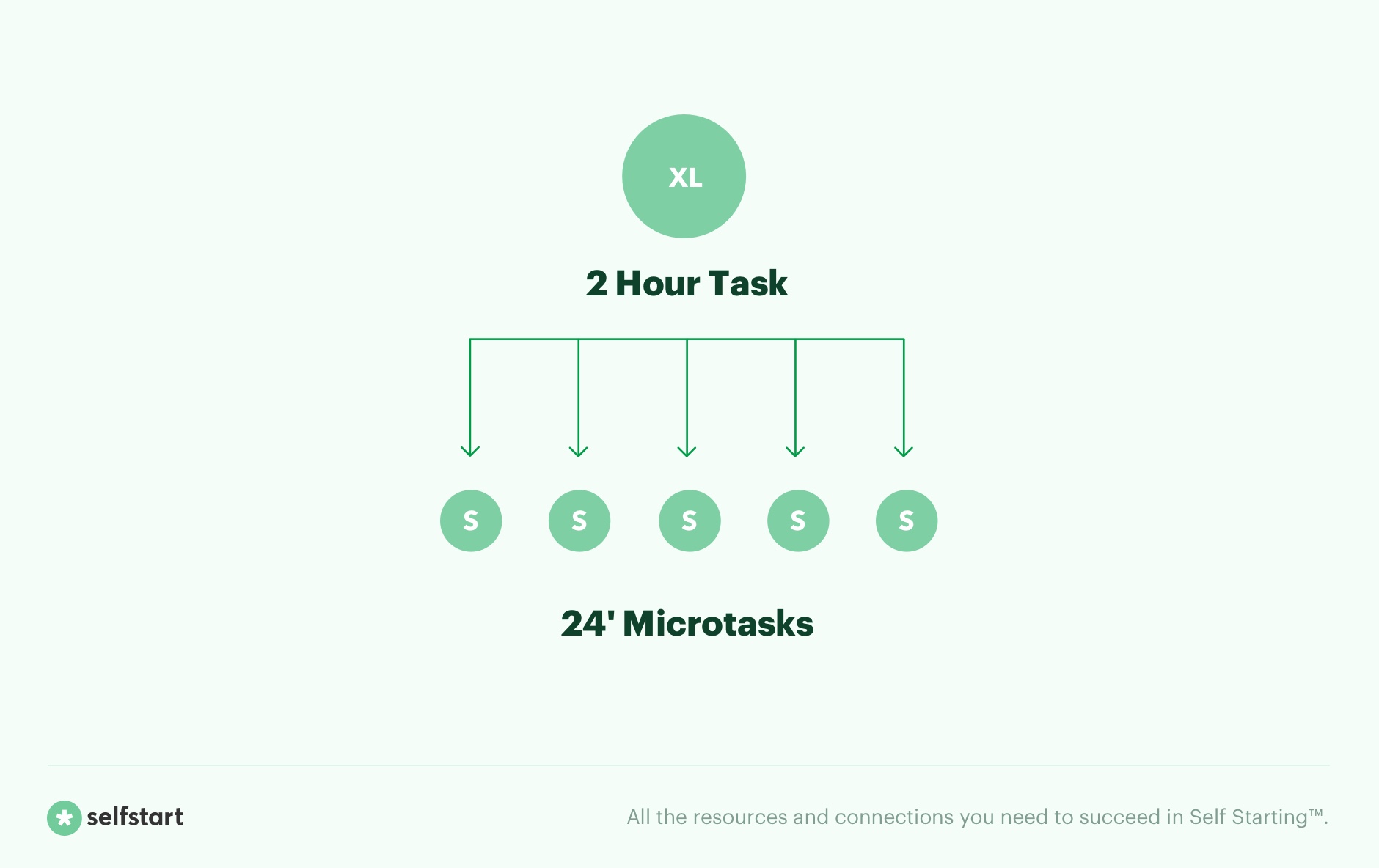Breaking Complex Tasks Into Easy to Difficult Tasks
Ever felt the panic of having to complete huge tasks in your work? Sounds like an everyday struggle? You are not alone, quite the opposite.
Big tasks cause stress. They seem impossible to
At the beginning of my career, I was experiencing this on a daily basis. I would spend hours trying to focus on big tasks that seemed endless. I would spend all nighters trying to finish everything that was on my list so that I wouldn't disappoint my important clients. Did I manage to get the work done? Yes. Was it a healthy and balanced lifestyle? Not at all.
The thing that helped me tackle big tasks effectively
All this changed when I started putting priority into breaking tasks down as much as possible. Till this day, I can honestly say that there hasn't been a more impactful change in my everyday productivity.
I formed this habit out of necessity. When starting to work with more than 3-4 clients my daily routine suddenly became overwhelming, and exhausting. I was unable to work for prolonged periods of time while staying in focus, and my mind would often drift away after an hour of work. Focusing on one big task might work quite well if you are working at a company, but it's not as simple when working for several clients at a time. The information load that you are trying to hold in your mind, along with the stress of knowing you have to switch to a different, big and daunting task after finishing your current one inhibits your productivity, and sanity.
I had to find a better way. I wanted more clients, I wanted to stay flexible, and I wanted to keep providing the value that I was promising.
I started trying to break down those big daunting tasks into smaller chunks. And then further break down the smaller chunks into tiny fragments that could easily be completed in less than 20-30 minutes. I needed to have a clear way to progress on a project even when my time was limited. If I had to design a new page for a website, I would create small tasks for each section of the page. If I had to do a 15-20 minute quick research before starting, I would add that separately too. If in order to complete an assignment I had to email a specific person, or even reply to something on Slack or Skype, that would be another mini task in my daily To Do list.

Here is what happened
- With each tiny task that I finished, I felt
accomplishment . And this accomplishment would drive my productivity and focus for the next tiny task. The human brain loves this rush of dopamine that you get after you finish even the smallest task, and this works wonders for staying productive. - I was able to track my progress. Instead of getting lost and feeling like I haven't progressed at all, I know had a crystal clear indication of how much I had already worked for something.
- Instead of having to focus
for 3-4 hours, I now had to focus for 20-40 minutes. This is IMMENSELYeasier, and can be made even more trivial by adding a couple of other tricks here and there. See Timing Yourself & The Pomodoro Technique - I was more mindful and efficient. By unloading my mind and only focusing on what was important for each small task, I was more productive, I had much greater clarity, and I was quicker, and better at what I was doing.
- I stressed way less. Knowing that I didn't have to finish a huge task at once, I avoided stress. Everything felt more manageable. I knew that if I could allocate some timed, focused sessions I could quickly progress with a task even if that didn't mean that I would finish it.
This pattern completely changed the way I approached
Forming a Habit
Nowadays, whenever I take up a new project or task, I start by breaking it down as much as possible. It's something that I have learned to do naturally, and helps me stay productive at any situation.
Try it yourself. Form a habit of adding structure to your tasks, and breaking them down as soon as you receive or plan them. Focus on a tiny fragment at a time. Progress little by little. And in no time that huge task will seem much less daunting than before.
Key Takeaways
- Big, stressful tasks in your everyday life are really difficult to handle in one go. Some of them require 3-4 hours or more of focus, which is unrealistic in most real life situations.
- Try breaking down all tasks into tiny fragments that you can complete in 20-30 minutes or less, even if they sound trivial.
- Focus on one small task at a time without any distractions. This will now be much easier to do than before. If you want to be strict, try using the Pomodoro Technique.
- This new pattern will help you feel constant accomplishment, better track your progress, and avoid stress by constantly being in control of your work.
Source: https://www.selfstart.co/articles/productivity/improve-productivity-by-breaking-down-tasks
0 Response to "Breaking Complex Tasks Into Easy to Difficult Tasks"
Postar um comentário